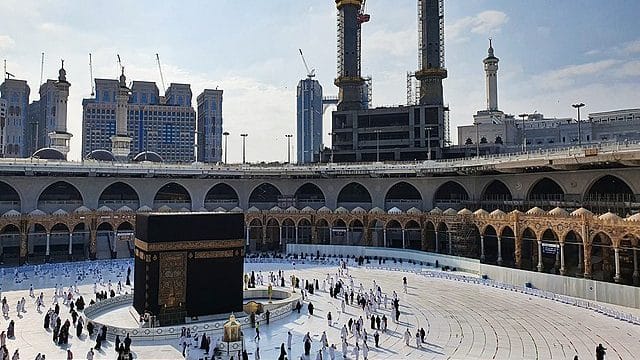New Delhi: As the holy month of Ramadan, a period of fasting, prayer, and reflection for Muslims, is expected to begin on 22 March, Saudi Arabia has imposed numerous rules and restrictions on the practice. They include limiting mosque loudspeakers, curbing donations, and banning the broadcasting of prayers within mosques, among others.
In a document released and circulated Friday, Minister of Islamic Affairs, Dawah and Guidance, Sheikh Abdullatif Bin Abdulaziz Al-Alsheikh gave out 10-point directions that the residents of the kingdom must follow during the month of Ramadan.
أصدر معالي وزير الشؤون الإسلامية د.#عبداللطيف_آل_الشيخ تعميمًا لكافة فروع الوزارة بضرورة تهيئة المساجد والجوامع لمايخدم المصلين، وذلك ضمن استعدادات الوزارة لاستقبال شهر #رمضان المبارك لهذا العام ١٤٤٤هـ. pic.twitter.com/9Q4x9CWWPE
— وزارة الشؤون الإسلامية ?? (@Saudi_Moia) March 3, 2023
The above-mentioned guidelines forbade mosques from collecting monetary donations for organising meals for worshippers and directed that such meals should be prepared and held in designated areas in mosque courtyards rather than inside the mosque. These meals should also be conducted under the responsibility of the imam (who leads Islamic worship services) and muezzin (the official who proclaims the call to the daily prayer five times a day at a mosque).
The ministry’s instructions also mandated that these two officials be present during the entire month except for ‘extreme necessity.’ They must ensure that evening prayers – Tarawih – and night prayers – Tahajjud – are completed with sufficient time so as not to inconvenience the worshippers and authorise the i’tikaaf, or seclusion, in the mosque during the last ten days of Ramadan.
Photography and the use of cameras to broadcast the performance of prayers and worshippers inside mosques have also been banned. The Ministry also forbade worshipers from bringing children to mosques, as this would create disturbance and hinder the whole idea of reverence.
Among the rules continued from previous years is the limitation on the volume of the loudspeakers emitting the call to prayer. The Ministry’s directions also encourage worshippers to read useful books about the mosque, as regulated by their circulars.
These controversial restrictions have received backlash from Muslims across the globe, with many critics seeing these guidelines as the Saudi government’s attempts to limit the influence of Islam in public life.
In a telephone interview with the Saudi news channel, Al-Saudiya, the Ministry spokesman addressed concerns, stating, “The Ministry does not prevent breaking the fast in mosques but, rather, organises it, so that there is a responsible person present and will have facilities within the framework of preserving the sanctity and cleanliness of the mosque.”
He also claimed the ban on filming and broadcasting prayers aims “to protect platforms from exploitation and was not issued due to mistrust of imams, preachers, or lecturers but rather to avoid any mistake, especially if it was unintended.”
Also read: Yemeni southern separatists voice frustration over Saudi-Houthi talks






